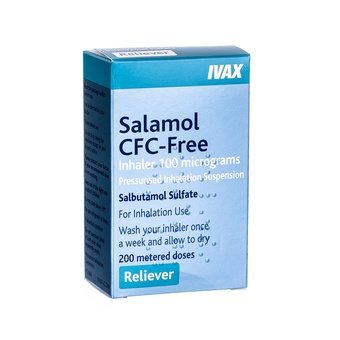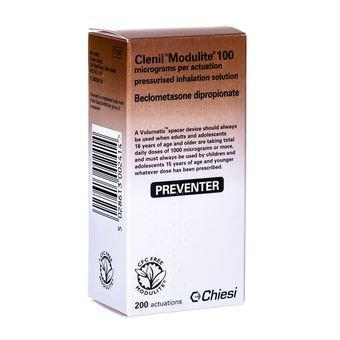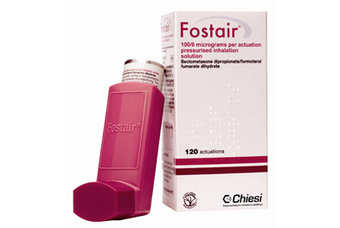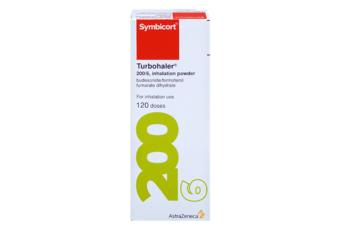Asthma

More information
Introduction
Asthma is a chronic respiratory disease (long-term), that usually begins during childhood, and leads sufferers to have trouble breathing, as well as fits of coughing and wheezing. If you have asthma, you’ll notice that certain things act as triggers, such as dust, pollutants, pollen, smoke, animal fur and exercise. The triggers for asthma inflame the bronchioles (which are very sensitive) and bring on what’s known as an asthma attack; a sharp increase in the severity of symptoms.
Asthma treatment can help to relieve current symptoms and prevent future symptoms.
Find out more about asthma and asthma treatment available at Cloud Pharmacy here.
Treatments
More information
Once an online consultation has been been approved by our medical team, our pharmacy will safely prepare and ship your treatment to you in discreet packaging using Royal Mail or DPD.
What is Asthma?
Asthma is a common lung condition that affects millions of people worldwide.
The condition causes occasional breathing difficulties and affects people of all ages, often starting in childhood, although occasionally developing for the first time in adults.
While there is currently no cure for asthma, there are simple treatments that can keep the symptoms under control and ensure they don’t have a significant impact on your life.
Asthma Symptoms
The most common asthma symptoms are:
- Breathlessness
- A tight chest
- Wheezing while breathing
- Coughing
These symptoms can occasionally get temporarily worse, a condition known as an asthma attack.
Asthma is most commonly treated through the everyday use of an inhaler.
What Causes Asthma?
The reason that asthma sufferers have such difficulties breathing is that the condition constricts the airways to the lungs. The muscles tighten, the wall becomes inflamed and swollen, and there is an increased amount of phlegm, which all leads to a much smaller passage for air to enter and exit through than that of a healthy person.
This may happen randomly or after exposure to one of the following asthma triggers:
- Allergies (house dust, animal fur, pollen)
- Smoke or pollution
- Cold air
- Exercise or physical exertion
- Infections such as cold and flu
Identifying your triggers can help you avoid them and keep your symptoms under control. Observe what causes your asthma attacks and consult your doctor.
While we know what asthma is and how it occurs, it’s not really known what causes the condition to develop in the first place. Some research suggests that you may be born with a predisposition that increases your risk of developing it, while other evidence suggests it could be hereditary or related to genetics.
What is an Asthma Attack?
Asthma attacks are a common complication of asthma.
Signs that you or someone may be suffering from an asthma attack include:
- Your asthma symptoms worsening (coughing, breathlessness, tight chest)
- Your reliever inhaler is ineffective
- You’re struggling to speak, eat or sleep
- Your breathing is getting faster
- You’re struggling to catch your breath
- Your peak flow score is unusually low
- Stomach or chest ache
These symptoms may occur over a long period of time, sometimes a few hours or a couple of days.
If you're on the right asthma treatment, your chance of having an asthma attack is greatly reduced. You should visit your GP at least once a year for a check-up and discussion of your asthma treatment.
Stages of Asthma
Asthma can typically be divided into four distinct stages.
The grading of these stages is based on the frequency at which symptoms occur, their severity and the patient’s overall health.
The four stages of asthma are:
- Mild intermittent asthma: symptoms occur no more than two days a week/month
- Mild persistent asthma: mild symptoms occur more often, typically more than twice a week
- Moderate persistent asthma: increasingly severe and invasive symptoms occur daily and at least one night a week, with flare-ups lasting several days
- Severe persistent asthma: symptoms occur throughout the day almost every day of the week, particularly at night. This stage may not respond well to treatment
More severe symptoms of asthma are increasingly uncommon, with mild symptoms affecting the majority of patients.
People who have moderate persistent asthma experience:
- Frequent symptoms (at least once a day)
- Flare-ups that last several days
- Coughing and wheezing interrupting sleep and everyday activities
People with moderate persistent asthma have roughly 60 to 80% normal lung functionality without treatment.
With treatment, however, patients can recover much of that functionality.
The Different Types of Asthma
There are a number of different types of asthma people struggle with everyday. It’s important to identify your type to proceed with the correct treatments.
Different types of asthma include:
- Allergic asthma: triggered by allergens such as pollen, pets and dust mites. Hay fever is often mistaken for this
- Seasonal asthma: asthma that only flares up at certain times of the year, such as in cold weather or during hay fever season
- Occupational asthma: caused directly by the work you do. This is most common in adults and people who suffer from symptoms while they’re at work. Dust and latex dust may trigger symptoms
- Non-allergic asthma: a type of asthma not related to an allergy trigger such as pollen or dust. This is less common and those with symptoms should consult a GP for advice
- Exercise-induced asthma: also known as ‘exercise-induced bronchoconstriction’ (EIB), this is the condition where the tightening and narrowing of the airways during exercise creates asthma-like symptoms. Often accompanied by symptoms such as a tight chest. If you’re experiencing this see your GP for a diagnosis and advice on pre-exercise relievers
- Difficult asthma: asthma can occasionally be difficult to manage due to other health issues, such as allergies or more serious conditions. If this increases the prevalence of asthma symptoms, consider speaking to a specialist about controlling your asthma
- Childhood asthma: asthma affects around 1.1 million children in the UK. Some people may experience asthma in childhood and find their condition improves over time
- Severe asthma: Around 4% of people suffer from what is known as severe asthma. This is characterised by frequent asthma attacks, ongoing symptoms despite taking higher doses of inhaled steroids and a lack of improvement in your condition. Typically, this will be diagnosed by a specialist
If you’re unsure about which type of asthma you have, explain your symptoms and their longevity to your GP.
Asthma Treatment
There is no permanent cure for asthma however there are still ways to manage the symptoms to prevent asthma attacks. The two main aims of asthma treatment are to relieve current symptoms and prevent future symptoms.
Asthma is most commonly treated by the use of an inhaler — a small device that helps you breathe in the medicine.
The main types of inhalers are:
- Reliever inhalers: used to quickly relieve asthma symptoms for a short time
- Preventer inhalers: used every day to prevent asthma symptoms
At Cloud Pharmacy, we stock a range of inhalers and asthma treatments that can help to alleviate asthma symptoms and reduce the impact of asthma attacks, including:
- Clenil Modulite Inhaler
- Salbutamol Inhaler
- Ventolin Inhaler
- Fostair Inhaler
Inhalers usually contain two types of medicines — bronchodilators and corticosteroids. Bronchodilators are a type of medication that relaxes muscles in the airways, opening the airways up to increase airflow to the lungs, which makes it easier to breathe. Corticosteroids — steroids — help to reduce swelling and inflammation in the airways.
These medicines can come in a variety of doses to treat varying severities of asthma.
The most suitable treatment option for you will depend on a few factors, such as whether the inhaler is for long-term, ongoing treatment or to act as a rescue in the event of an asthma attack.
Asthma Management
There are also a number of lifestyle changes asthma patients can make to help ease symptoms and prevent worsening their asthma:
- Frequently practice breathing exercises
- Learn to recognise the triggers of your particular asthma and avoid them, such as dusty workspaces
- Commit to more regular exercise to improve lung strength
- Quit or avoid smoking
- Eat a healthy, balanced diet to encourage weight loss and reduce the possibility of flare-ups
- Track your breathing daily to measure the progress of asthma treatments
- Get vaccinated for seasonal flu
- Consult your doctor about additional lifestyle changes
A healthier lifestyle that prioritises building lung strength and avoiding harmful substances can help lessen the impact of less severe asthma.
Millions of people around the world manage life with asthma every day. While a distressing and rarely dangerous condition, modern solutions have made living with asthma straightforward and easy to manage for all ages.
Guides
How it works

First...
Complete a quick eligibility check

Then...
Order your treatment

Finally.
Fast, confidential delivery to your door





















